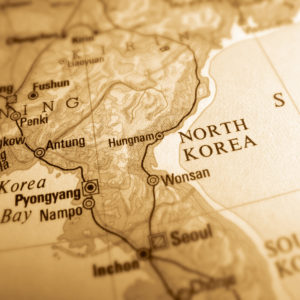JEJU, South Korea ― You have to wonder what a typical U.S. embassy does with a petition pleading a cause that some people don’t want to know about.
That’s the question asked by activists crusading for the families of victims of “4.3,” the revolt on the idyllic island of Jeju that began on April 3, 1948, in which about 30,000 died in clashes with the Korean army and police. Two years ago, members of the 4.3 Victims’ Family Association dropped off their petition with 100,000 signatures at the U.S. Embassy in Seoul blaming the United States for backing the crackdown and demanding reparations.
Hur Sang-soo, president of the Korea Social Science Research Institute, delivered the petition, including all those signatures in four boxes, to a guard at the U.S. Embassy but has no idea where it went from there. What does the embassy think of this petition? Has anyone read it, glanced at the names, maybe sent it on to Washington for the State Department to consider?
You can imagine diplomatic double-talk in reply, maybe someone promising to “consider the matter.” But no, Song Seung-moon, chair of the 4.3 Victims’ Family Association, is still awaiting a pro forma response while beginning to accept the reality that the petition has fallen on stone-deaf ears.
The reason for the American silence, aside from the fact that the people in the embassy have more current matters to worry about between the United States and its putative Korean ally, is pretty obvious. They can’t get excited about a revolt that happened 70 years ago. Absent hard evidence to the contrary, they doubt U.S. forces had anything to do with it.
For the petitioners, the challenge is to prove the Americans not only knew what was going on but may have influenced it or ordered it, but that’s difficult. Just look at the history.
The U.S. military government took over from the Japanese in Korea in September 1945, a month or so after the Japanese surrendered on Aug. 15, and hung on until Aug. 15, 1948, third anniversary of the surrender, when Syngman Rhee was inaugurated as the first president of the brand-new Republic of Korea.
The case for American involvement rests on the appointment of ruthless Korean commanders who were responsible for wiping out villages suspected of harboring communists. The slaughter intensified several months into Rhee’s presidency, spread over the remote hills and valleys around Mount Halla in 1949 and was largely over when the North Koreans invaded the South in June 1950.
For ages dictatorial governments suppressed tales of dissent, but villagers in recent years have been offering firsthand memories of the horrors. Song Seung-moon, for instance, described the torching of five buildings in his village of Orari on May 1, 1948. A rightist youth group from the mainland of South Korea, whose members had left North Korea to escape communist rule, was believed responsible. By the time that particular incident was over, 246 people had died.
There was much worse to come. At the modern House of Sharing in Bukchon, a scenic village of rice farmers and fishermen on the northern coast, old women recall in graphic detail the killing of hundreds in January 1949. A guide shows visitors the burial ground where large stones are strewn as the bodies were found. Small mounds mark the graves of children.
Not far from Jeju International Airport, where many were buried, 91-year-old Kim Chang-ju says “most of my friends were killed.” Kim, who was working at the airport, saw U.S. helicopters overhead. On the slopes of Mount Halla, he says a U.S. Army communications unit was humming away. He takes all that as evidence of American involvement though he saw no Americans in his village.
Who was ultimately responsible for these and many other episodes, known and verified, is open for anyone to examine? The Americans don’t actually deny complicity. They just don’t say anything. It would be nice if they would look at that petition and let it be known what they think of it.
That’s not to say the Americans have to accept claims of a U.S. role. It’s just that they owe the world, not just the victims’ families, a promise to search the records and come up with documents, reports, anything revealing what the U.S. forces were up to. Simple curiosity should impel someone in Washington to look into the American mission on Jeju at the time of 4.3 even if the answer may not be all the activists believe.

